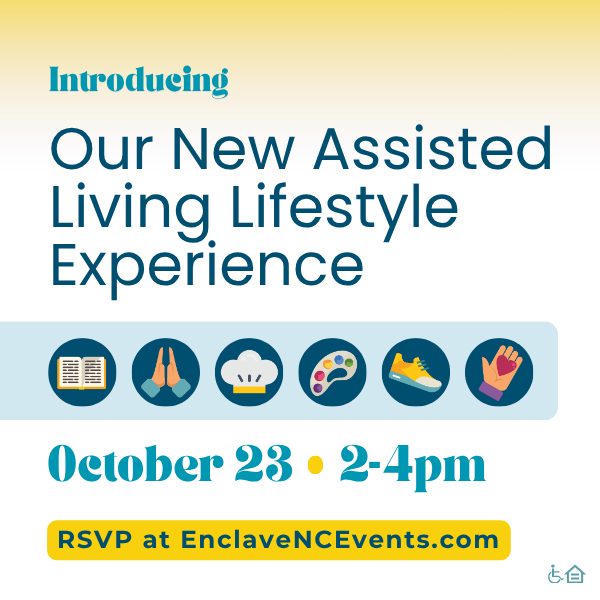Many seniors experience communication difficulties due to dementia. However, continued engagement is crucial for their emotional well-being and cognitive health. Stimulating conversations can bridge the gap created by memory loss, offering a sense of connection and joy.
Instead of focusing on the present, asking open-ended questions about the past offers your loved one an opportunity to reminisce and respond without the possibility of a wrong answer or the pressure of a particular expectation. Try simple questions designed to recall positive experiences like:
- What was a theatre show or movie you enjoyed seeing?
- What holiday is your favourite, and what do you do to celebrate it?
- What job did you like doing best when you were young?
These kinds of questions enable your loved one to reminisce over fond memories and lead to creating new and meaningful experiences in the present.
It’s important to remember that dementia and its related conditions are progressive. So, you should consider your loved one’s current cognitive ability. Along with some fun questions, we’ve also included helpful tips on how and when to ask questions. If your loved one is in a memory care community, their caregivers can also provide guidance based on your parent’s day or week.
Quick Overview of Dementia
Dementia is a term used to describe a range of cognitive impairments affecting memory, thinking, and social abilities. Alzheimer’s disease accounts for up to 80% of all dementia cases and is the most common form of the condition.
Memory loss and confusion are hallmark symptoms and can often lead to frustration and communication barriers. But even with these challenges, engaging in conversation remains a valuable way to support cognitive function and emotional well-being.
The unpredictability of dementia means that some days might be better than others. Understanding this can help caregivers and loved ones approach conversations with patience and empathy. Remember, the goal is not to test memory but to foster positive experiences and connections.
The Power of Questions
Questions can be an excellent way of maintaining cognitive function and sparking joyful memories. They can evoke familiarity and comfort, helping seniors recall past experiences. Asking questions also shows you value their thoughts and memories, strengthening emotional bonds.

20 Questions to Ask Your Loved One
Here’s a possible list of 20 fun and engaging questions to open up a conversation with a loved one with dementia:
- What was a game you played in your childhood?
- Can you describe your first job? Did you like it?
- What is your favorite season and why?
- Do you remember your first pet? What was it like?
- What’s the most beautiful place you’ve visited?
- Do you have a favorite holiday memory?
- What kind of music did you listen to when you were young?
- What were your close friends like growing up?
- What was your favorite subject in school?
- Can you tell me about a funny memory from your past?
- What is a meal or dish you’re particularly good at making?
- Do you remember any family traditions?
- What hobbies did you enjoy?
- Can you share a memory about a particular family member?
- What’s the best piece of advice you’ve received?
- Do you have a favorite quote or saying?
- What was your favorite movie or book?
- Do you remember any stories your parents told you?
- What was your favorite way to spend weekends?
- Can you tell me about a memorable birthday or celebration?
These questions are designed to be simple yet thoughtful. They encourage seniors to share their stories and experiences to create new and meaningful experiences in the present.
Tips for Asking Questions
It’s essential to approach the conversation with patience and empathy when asking questions. Here are some practical tips to ensure a positive interaction:
- Use open-ended questions: Encourage detailed responses rather than yes/no answers. This helps keep the conversation flowing and offers more opportunities for engagement. Questions without a fixed response open the door to a wider expression of memories.
- Practice active listening: Show genuine interest in their answers. Nodding, maintaining eye contact, and repeating parts of their responses can make them feel heard and valued.
- Be patient and positive: Understand that they might take time to respond. Avoid correcting them if they get the details wrong. The focus should be on the enjoyment of the conversation rather than specific historical accuracy.
- Create a comfortable environment: Choose a quiet, familiar setting free from distractions. This helps them feel at ease and more willing to engage.
- Use visual aids: Photos, music, or familiar objects can trigger memories and make the conversation more interactive.
- Be mindful of their mood: If they seem tired or agitated, it’s okay to take a break and try again later. The goal is to have a pleasant experience, not to force a conversation.
Get Support in the Little Things
Effective communication with loved ones who have dementia is not only possible but also enriching for both parties. By asking thoughtful questions, you can spark joyful memories, foster connections, and support their cognitive function. We hope these 20 questions help you create meaningful moments with your senior loved ones. Remember, the key is to approach each conversation with empathy, patience, and a genuine desire to connect.
If you’re wondering how to get started, our team can help. Contact us at The Enclave of Newell Creek today. We’re happy to answer your questions about how to support your loved one through the dementia journey.









